Adopting a Golden Retriever into your life is like bringing a ray of brightness into your house. Their quips, amusing smiles, and unwavering affection are sure to make your day. However, with all the hugging and wagging buttocks comes the responsibility of providing adequate care, training, and socialization. Getting a Golden Retriever for the first time may be both exciting and stressful. There is a lot to learn about puppy behavior and managing hair loss. This blog will provide Golden Retriever Guidance to help you navigate the early stages of ownership. We’ll go over everything from basic training and grooming skills to how to keep your Golden Retriever healthy and form a lifelong, loving relationship. Ready to start on an extraordinary journey with your new furry best buddy!
Contents
- 1 Understanding the Golden Retriever Breed:
- 2 Prepare Your Home for a Golden Retriever:
- 3 Feeding and Nutrition Guidelines:
- 4 Golden Retriever Guidance: Training Essentials for First-Time Owners
- 5 Exercise and Playtime Needs:
- 6 How Much Exercise Does a Golden Retriever Need?
- 7 Grooming and Coat Maintenance:
- 8 Health and Veterinary Care:
- 9 Building a Lifetime Bond with Your Golden Retriever:
- 10 Conclusion:
Understanding the Golden Retriever Breed:
When you adopt a Golden Retriever into your house, you should be aware of the breed’s particular features. Knowing what to expect can allow you to better prepare for the trials and joys of owning a Golden Retriever.
Breed Characteristics:
Golden Retrievers are known for their friendly, intelligent, and tender natures. They love to please, so they’re fairly easy to train. Due to their high-energy situations, they need regular exercise to stay happy and healthy. Their strong stalking instinct and love of play make them great companions for active people and families.
Golden Retriever Advantages and Disadvantages:
Advantages:
Golden Retrievers are extremely religious and loyal to their families. Their gentle demeanor and tolerance make them ideal for youngsters. Their intelligence makes training (usually!) rather simple.
Disadvantages:
Be prepared for substantial hair loss! Golden retrievers have a double fleece that sheds heavily, particularly throughout the changing seasons. Due to their high energy levels, they require plenty of activity to avoid boredom and disruptive behavior. They, like many thoroughbred youngsters, are prone to health problems such as hipsterism dysplasia and cancer.
Is a Golden Retriever right for you? If you want a loving, athletic companion and are ready to satisfy their exercise requirements and control their shedding, a Golden Retriever might be the ideal addition to your family. However, before making a choice to retain a Golden, it is critical to analyze all factors of the situation.
Prepare Your Home for a Golden Retriever:
Bringing home a golden retriever is exciting, but it’s important to prepare your home to ensure the safety and happiness of your new furry friend. With a little preparation, you can create a welcoming environment for your golden retriever.
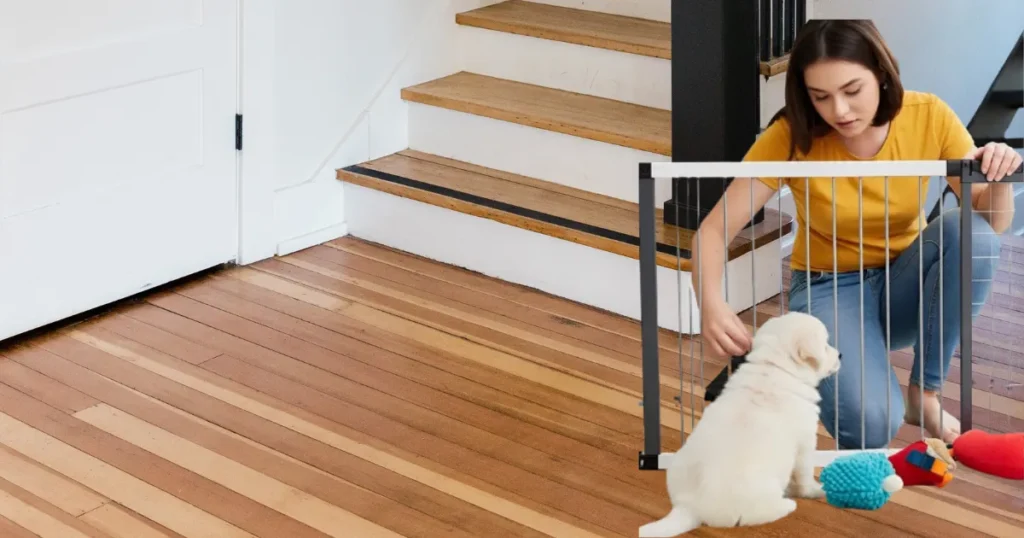
Puppy-Proofing Your Home:
Just like a human baby, a puppy explores the world with its mouth! Baby-proofing your pet is critical.
Hazardous Items:
Remove anything that could pose a hazard, such as exposed wires, poisonous plants, cleaning products, and small objects that could be swallowed.
Safe Space:
Designate a designated area for sleeping and playing. This is a safe haven for your dog.
Important Supplies Checklist:
Food and Water Bowls:
Choose bowls that are durable and easy to clean. Stainless steel and ceramic are good options. Choose the right size for your dog.
Bed and crate:
A comfortable bed and crate can give your golden retriever a sense of security. Crate training your dog has many benefits, including potty training and preventing anxiety.
Leash and collar:
A properly sized leash and collar are essential for walks and training. For more control, consider using a harness, especially for puppies.
Toys and chew toys:
Provide your puppy with a variety of toys to keep him busy and discourage chewing. Choose toys that are appropriate for your golden retriever’s age and chewing strength.
Preparing your home for your golden retriever’s arrival will make the transition easier for both of you. A safe and comfortable environment will ensure that your new furry family member settles in quickly and happily.
Feeding and Nutrition Guidelines:
A nutritious diet is the basis for your Golden Retriever’s health and well-being. Choosing the correct meals and forming good eating habits are essential for their growth, development, and survival.

Choose the Right Diet:
Golden Retrievers have nutritional needs that vary according on their age, exercise level, and health state.
Food: Dry food is an accessible and nutritious choice. Wet food can be more appealing, particularly for finicky eaters. A raw diet involves careful planning and prescription and should be discussed with your veterinarian.
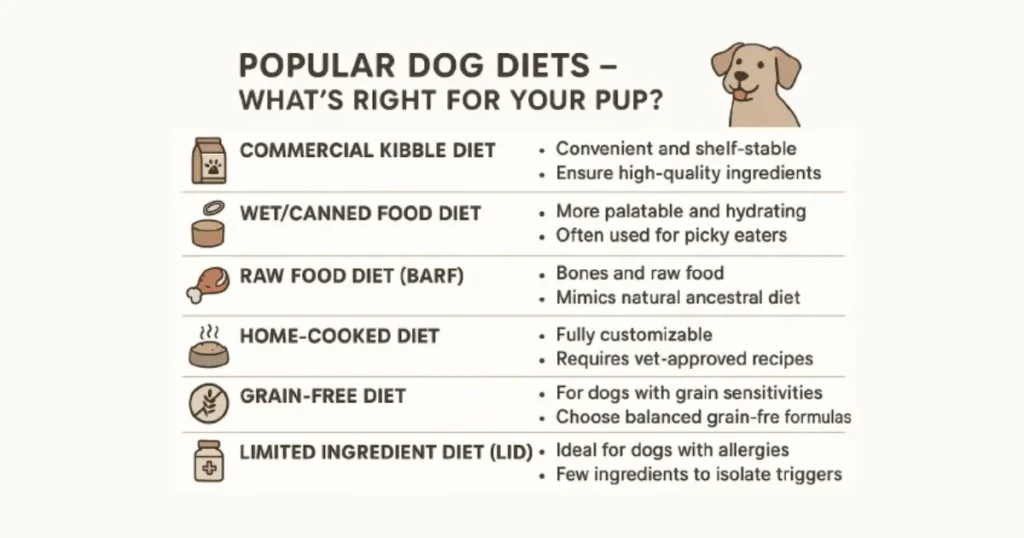
Diet Plan and Portion Control:
Puppy and Adult Dog:
Puppies need to be fed smaller, more frequent meals throughout the day. Adult dogs usually need two meals a day.
Portion Control:
Follow the feeding instructions on the dog food package and adjust portion sizes to suit your Golden Retriever’s individual needs. Preventing obesity is critical to your Golden Retriever’s health.
Best Treats for Exercise and Health:
Positive Reinforcement:
Use little, healthful rewards to learn and reinforce. Choose sweets using natural ingredients.
Safe Human Foods:
Some human foods, such as tiny pieces of cooked chicken, carrots, or apples, are okay for dogs to consume in quantity.
Foods to Avoid:
Never feed your Golden Retriever chocolate, onions, grapes, raisins, or anything containing xylitol (a popular artificial sweetener). These foods are toxic to children. Consult your veterinarian for reliable advice on the best diet and Feeding regimen for your Golden Retriever. A healthy diet is an investment in your dog’s well-being and happiness.
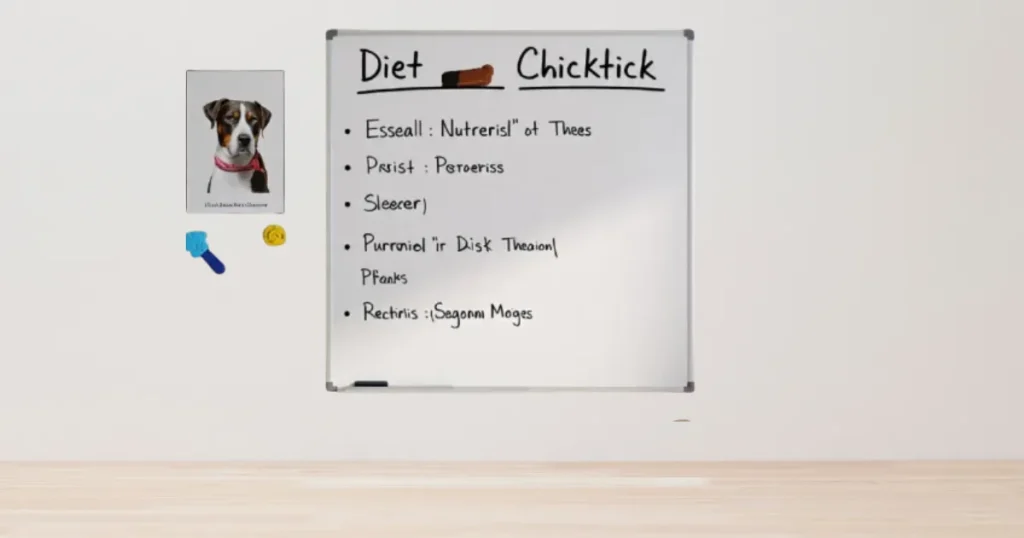
Golden Retriever Guidance: Training Essentials for First-Time Owners
Training is the most critical component of responsible Golden Retriever power. A well-trained Golden Retriever is a joyful and well-adjusted companion. While this may be difficult for first-time dog owners, with thickness, tolerance, and positive reinforcement, you can effectively train your new furry buddy.
Restroom Training Basics:
Routine is Key:
Maintain a consistent bathroom training regimen. Walk your puppy dog frequently, especially after he wakes up, eats, and plays.
Positive Reinforcement:
After your puppy dog has urinated, give him an incontinent award. For example, praise him, give him a treat, or give him his favorite toy.

Teaching Basic Commands:
Essential Commands:
Focus on teaching basic obedience instructions such as sit, stay, come, and leave. These orders are necessary for safety and good behavior.
Consistency and Patience:
Maintain harmony with your directives and employ positive underlying methods. To summarize, tolerance is critical; training requires time and repetition.
Socialization and Behavior Training:
Early Socialization:
Introduce your puppy to a variety of people, dogs, and settings as soon as possible for socialization. This helps them develop into well-adjusted and confident dogs.
Preventing Problem Behaviors:
Early intervention is recommended for common behavioral issues like as excessive barking and chewing. Provide your dog with a variety of acceptable chew toys and divert him when he displays undesired behavior.
Golden retriever training is a continual process. Continue to reward excellent behavior and resolve any issues that develop. Consider attending puppy dog lessons or speaking with a professional coach who can provide you with a proven strategy. Your training efforts will be rewarded with a well-behaved and affectionate buddy.
Exercise and Playtime Needs:
Golden Retrievers are energetic dogs that need Regular Exercise to stay happy and healthy. To be a responsible Golden Retriever owner, it is important to understand your dog’s exercise needs and provide plenty of opportunities for play.
How Much Exercise Does a Golden Retriever Need?
Puppies:
Although puppies are full of energy, it is important to avoid overexertion, especially in the first few months. Excessive exercise can put stress on developing joints. Focus on short, frequent play sessions.
Adult Dogs:
Adult Golden Retrievers typically need at least one hour of exercise per day. This can include walking, running, swimming, or playing in the garden.
Fun Activities to Keep Your Golden Retriever Engaged:
Classic Games:
Fetch is one of the Golden Retriever’s favorite games! Their recovery instinct makes them true recovery enthusiasts.
Water Fun:
Many Golden Retrievers love to swim. It’s a great way for them to exercise and cool off on hot days.
Agility and Training:
Agility exercises and obedience training provide physical and mental stimulation.
Mental Stimulation:
Puzzles and interactive games exercise your Golden Retriever’s brain and keep him from getting bored. This toy will be a Fun Activities to spend time at home.
It’s important for your Golden Retriever’s physical and mental well-being that he gets enough exercise and play. A tired Golden Retriever is a happy Golden Retriever! Remember to adjust the intensity and duration of training according to your dog’s age, health, and condition.
Grooming and Coat Maintenance:
Golden Retrievers are famous for their beautiful, thick coats, but that beauty means regular grooming. Cleaning up feces and maintaining a healthy coat are critical to your Golden Retriever’s well-being.
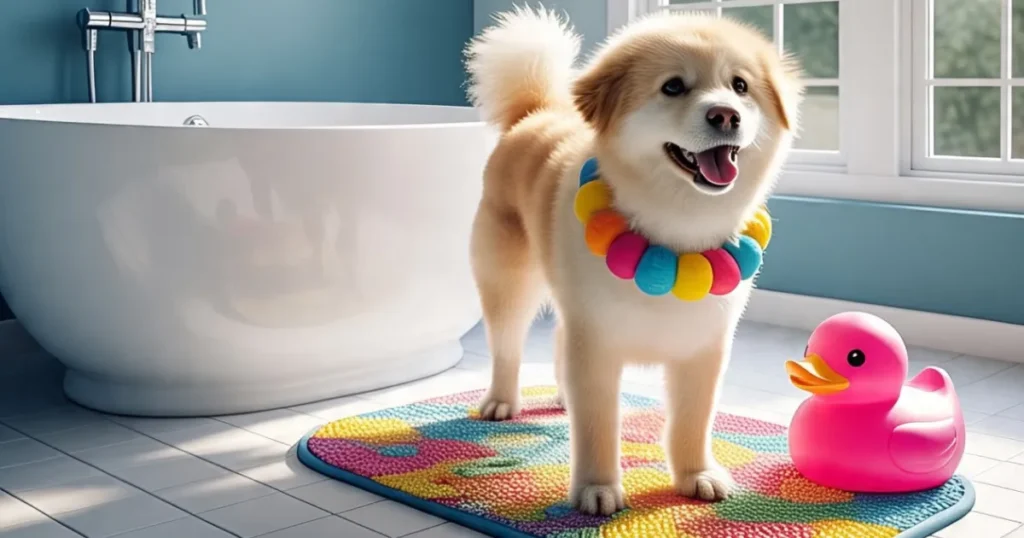
Managing Shedding:
Brushing is Key:
Regular brushing is the most effective way to prevent hair loss. Try to brush your Golden Retriever at least a few times a week, preferably daily, especially during shedding season.
Best Brushes:
A slicker brush and a comb are great tools for preventing tangling.
Bathing and Hygiene Tips:
Bathing Frequency:
Golden Retrievers do not need to be bathed often. Bathing too often can strip the natural oils from their coat. Only wash them, when necessary, such as if they are very dirty or smelly.
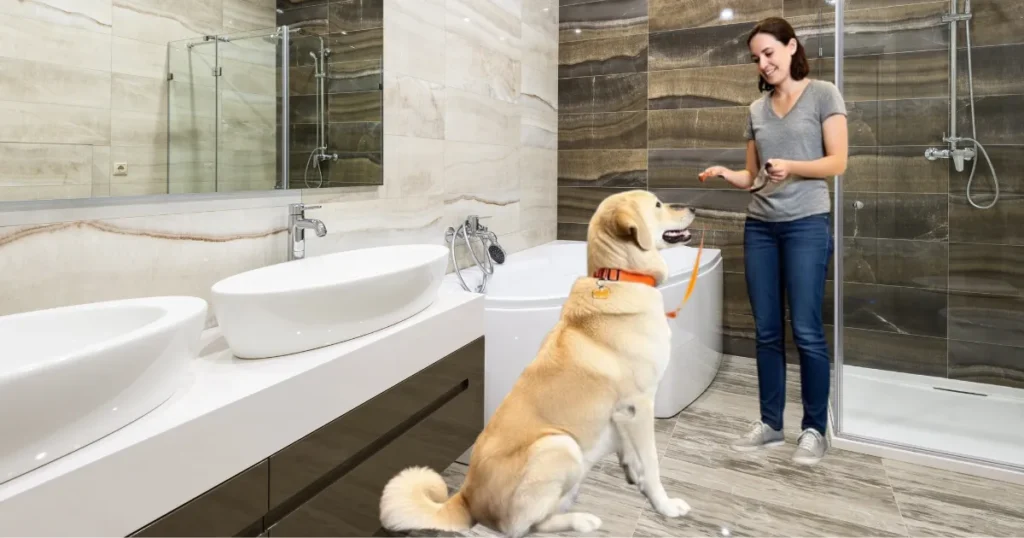
Additional hygiene measures:
Clean your Golden Retriever’s ears regularly to prevent infections. Trim his nails when needed, and don’t forget his teeth! Regular dental cleaning is essential for oral health. Regular cleaning will keep your Golden Retriever looking and feeling good. It’s also a good opportunity to bond with your dog and check for health problems.
Health and Veterinary Care:
Golden Retrievers are generally healthy dogs, but like all breeds, they are prone to certain health problems. It is important that you are aware of these potential problems and seek appropriate veterinary care to ensure the well-being of your Golden Retriever.
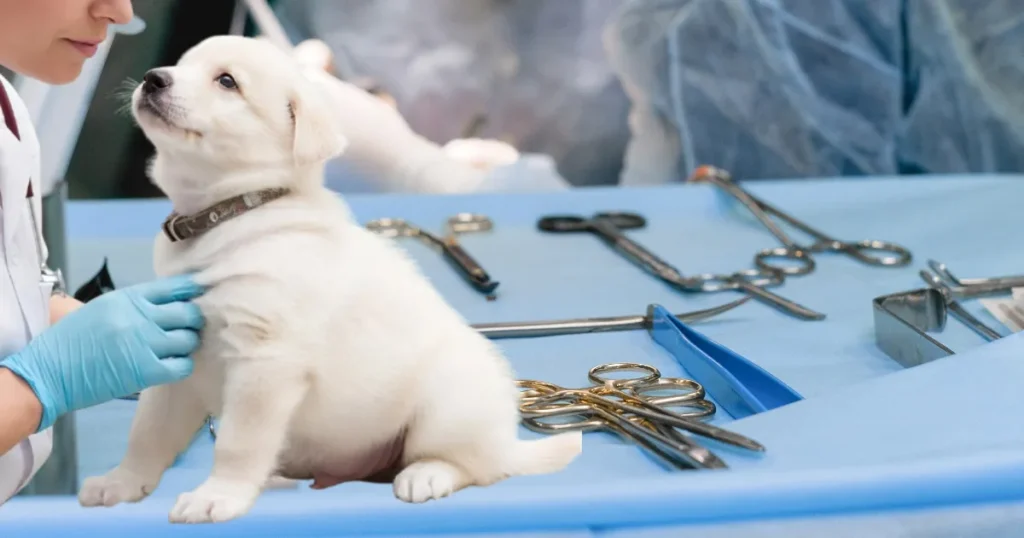
Common Health Problems in Golden Retrievers:
Possible Problems:
Hip dysplasia, ear infections, and heart problems are some common health problems in Golden Retrievers.
Early Detection:
It is essential to recognize the early signs of illness. If you notice any changes in your Golden Retriever’s behavior, appetite, or physical condition, contact your veterinarian immediately.
Vaccinations and Prevention:
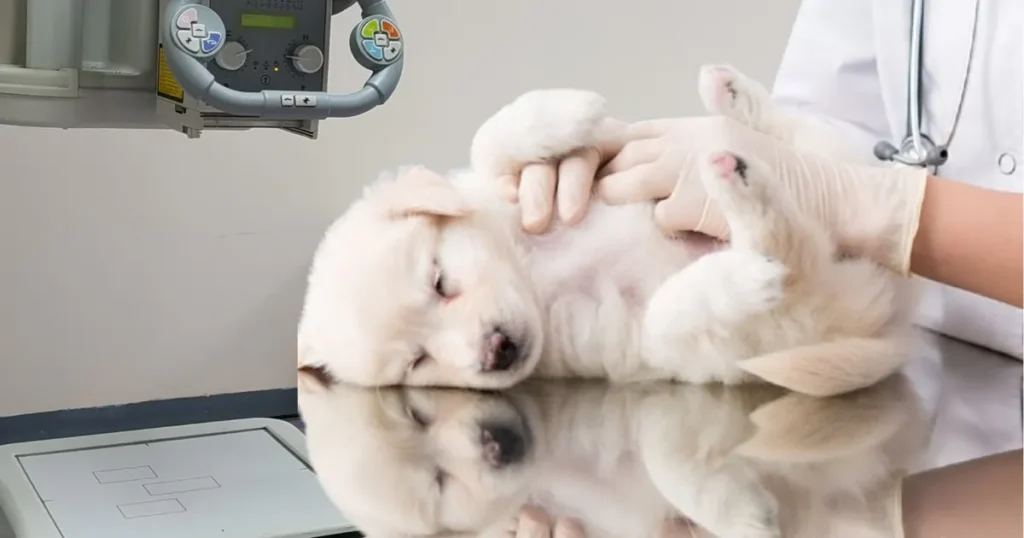
Vaccination Schedule:
Follow your veterinarian’s recommended vaccination schedule to protect your Golden Retriever from common diseases.
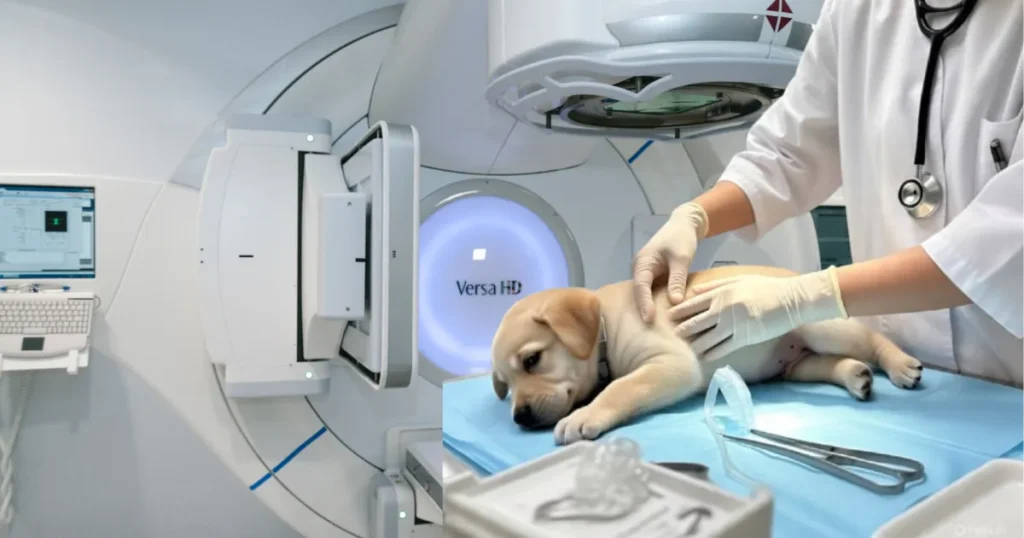
Parasite Prevention:
Regular deworming and flea and tick prevention are essential to your dog’s health.
Spaying and Neutering:
Benefits:
Neutering your Golden Retriever has a number of health and behavioral benefits. Talk to your veterinarian about the best time to have the procedure done.
Regular veterinary checkups are critical to your Golden Retriever’s health. Your veterinarian can provide you with personalized recommendations for preventative care, nutrition, and specific health issues specific to your dog’s breed and individual needs.
Building a Lifetime Bond with Your Golden Retriever:
The bond that exists between you and your Golden Retriever is one of life’s most precious gifts. It is built on love, trust, and countless moments spent together. Maintaining this bond takes time and effort, but the rewards are immeasurable.
The Importance of Quality Communication:
Quality communication with your Golden Retriever is crucial to building a strong relationship. Whether it’s a walk in the park, a game of fetch, or just cuddling on the couch, these moments create unforgettable memories and strengthen your bond.
Positive Reinforcement and Consistency:
Positive reinforcement is key to effective training and building trust. Reward your Golden Retriever for good behavior with praise, a treat, or a toy. Consistency in training is also important. Be patient and understanding, and your Golden Retriever will thrive.
Build Trust:
Trust is the foundation of all strong relationships. Show your Golden Retriever love and affection, be there for him, and create a safe and secure environment for him. Their love and companionship create a bond that lasts a lifetime. A happy dog is a loved dog, and a loved dog is a loyal companion.
Conclusion:
Bringing a Golden Retriever into your life is an incredibly enriching experience. These top tips will help you navigate the joys and challenges of owning a Golden Retriever. They range from understanding your dog’s special needs to consistently training and loving them. Remember to be patient, consistent, and most of all, loving. With time and effort, you will raise a well-behaved, happy companion who will bring sunshine into your life. We look forward to your feedback and would be happy to answer your questions! Share your thoughts in the comments below. Let’s learn and grow together as Golden Retriever Guidance families.
Dr. Nabeel A.
Hi, I’m Dr. Nabeel Akram – a farm management professional by trade and a passionate Golden Retriever enthusiast at heart. With years of experience in animal science and livestock care, I’ve built a career around understanding animals—how they live, thrive, and bring value to our lives. This blog is a personal project born from that same passion, focusing on one of the most loyal and lovable breeds out there: the Golden Retriever. Whether I’m managing farm operations or sharing insights on canine health, behavior, and care, it all ties back to one core belief—animals deserve thoughtful, informed, and compassionate attention. Welcome to a space where professional expertise meets genuine love for dogs.
Facebook |
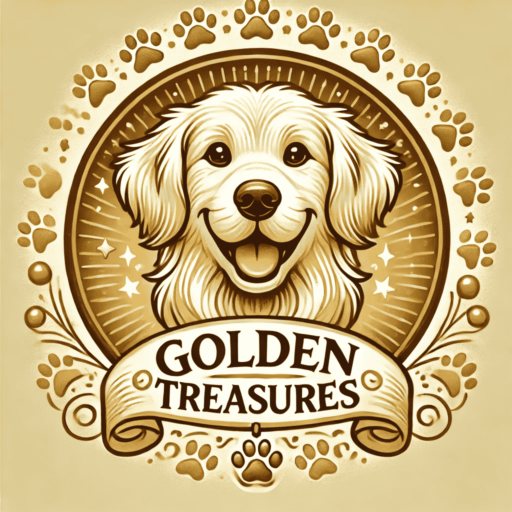

Links will be automatically removed from comments.